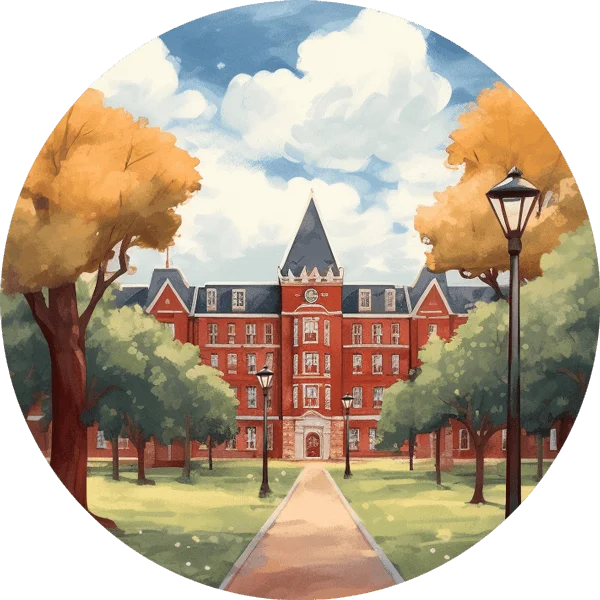& Universities

Choosing to get a Bachelor of Science in Nursing (BSN) is a big deal. It’s more than a degree—it’s a decision to step into a career that changes lives, including your own. A BSN opens the doors to higher-paying roles, job security, and leadership positions in healthcare. You’re not just investing in your future; you’re committing to make a difference in the lives of others every single day.
And let’s be honest: it’s no secret that hospitals and healthcare systems are favoring BSN-prepared nurses. This isn’t just a trend; it’s a shift in the industry. Employers know that BSN nurses deliver better care, and patients see better outcomes. The world needs BSN-trained nurses now more than ever. The challenge? Finding a program that doesn’t saddle you with student debt.
Introduction
A Bachelor of Science in Nursing (BSN) is the first step toward a rewarding career in healthcare. However, tuition costs can be a major concern for prospective nursing students. That’s why we’ve ranked the best-value BSN programs that offer affordable tuition, quality education, and high job placement rates.
If you’re looking for an accredited, cost-effective BSN degree with great return on investment (ROI), this guide will help you choose the right program.
How We Ranked the Best Value BSN Programs
To determine the top affordable BSN programs, we considered the following factors:
Tuition Costs (in-state & out-of-state rates)
Accreditation (CCNE or ACEN)
NCLEX-RN Pass Rates
Student Satisfaction & Job Placement
Financial Aid & Scholarships
Clinical Training Opportunities
Top 10 Affordable BSN Programs in the U.S.
University of North Carolina at Wilmington (UNCW)
The University of North Carolina at Wilmington offers a highly respected Bachelor of Science in Nursing (BSN) program designed for students aiming to become professional nurses. Accredited by the Commission on Collegiate Nursing Education (CCNE), the program prepares students with a solid foundation in nursing theory and clinical practice. The program is typically completed in four years, but students with previous college coursework may be able to expedite their studies through transfer credits. Unique features include simulation labs and clinical experiences across diverse healthcare settings.
In-state tuition is approximately $10,000 per year, while out-of-state tuition is around $22,000 per year. Additional fees for books, supplies, and clinical activities can raise the overall cost.
UNCW offers a robust nursing program with an emphasis on community health, clinical skill development, and leadership. Students benefit from state-of-the-art facilities and a close-knit learning environment, making it an ideal choice for those who want to engage in both hands-on clinical experience and academic rigor. The program has a strong reputation for producing graduates who are well-prepared to take on diverse nursing roles and make a meaningful impact in healthcare.
Western Governors University (WGU)
WGU’s BSN program is entirely online, providing flexibility for working professionals or those with busy schedules. The program is accredited by the CCNE and is competency-based, meaning students progress at their own pace by demonstrating mastery of required skills and knowledge. This unique structure allows students to potentially complete their degree faster depending on their prior experience and commitment.
The estimated tuition for WGU’s BSN program is approximately $3,500 per term, with a maximum of two terms per year. This makes it a highly affordable option, especially for students looking to accelerate their degree.
The main advantage of WGU’s BSN program is its flexibility and affordability. Students can tailor their education to their own pace, which can make it more accessible to working adults or those with family obligations. Additionally, WGU provides dedicated faculty support, including a personal mentor for each student, helping them navigate their academic journey.
University of New Mexico (UNM)
UNM’s BSN program is an accredited and comprehensive program designed to provide students with a deep understanding of clinical nursing practice. The program is traditionally completed over four years and offers a combination of classroom learning, lab simulation, and hands-on clinical experiences. Students also have access to the UNM Health Sciences Center, which is a leader in healthcare research and services in New Mexico.
In-state tuition for the BSN program is approximately $10,000 per year, while out-of-state students pay around $25,000 per year. Costs for textbooks, lab fees, and clinical uniforms should also be factored in.
UNM is ideal for students interested in a BSN program that combines academic rigor with real-world experience. Students will have the opportunity to gain clinical experience at one of the largest healthcare systems in the region. The program is also known for its faculty, who are dedicated to supporting students’ educational and professional growth.
Aspen University
Aspen University offers an online RN to BSN program, designed to help registered nurses earn their bachelor’s degree in nursing. The program is accredited by the CCNE and can be completed in as little as one year. Students can complete coursework entirely online, with minimal in-person clinical requirements, making it a flexible option for working professionals.
The program’s tuition is estimated at around $4,500 per year, with a low cost per credit hour making it a budget-friendly option for those wishing to further their education while continuing to work.
Aspen University’s RN to BSN program is known for its affordability and flexibility, making it an excellent option for working nurses who want to enhance their credentials without sacrificing work-life balance. The program offers practical, real-world learning opportunities that help students build on their existing skills.
Fayetteville State University
Fayetteville State University’s BSN program is fully accredited and provides both a traditional and accelerated option for students. It’s a comprehensive four-year program that combines theoretical learning with hands-on clinical practice. The program’s faculty are dedicated to preparing students for leadership roles in healthcare settings, and the university has strong community and healthcare partnerships for clinical placements.
The in-state tuition is approximately $6,700 per year, and out-of-state tuition is around $16,500 per year. Additional costs for books and clinical expenses should be expected.
Fayetteville State University offers a personalized learning experience with small class sizes and individualized attention from faculty. Students benefit from an inclusive environment, making it an excellent choice for those seeking a supportive academic community. The program’s community health focus and clinical practice opportunities ensure students are prepared for a successful nursing career.
Florida International University (FIU)
FIU’s BSN program is accredited by the Commission on Collegiate Nursing Education (CCNE), ensuring a high standard of education. The program typically takes four years to complete for traditional students, with options for accelerated tracks for those with prior degrees. Key features include state-of-the-art simulation labs, extensive clinical rotations in diverse healthcare settings, and a focus on cultural competence to serve Miami’s multicultural population.
Approximately $6,500 per year for in-state students; out-of-state tuition is higher.
FIU offers a world-class education with a global perspective, preparing students to excel in diverse healthcare environments. The program emphasizes hands-on learning and community engagement, ensuring graduates are well-rounded professionals. Students also benefit from proximity to some of Florida’s leading hospitals and healthcare facilities.
Texas A&M International University (TAMIU)
Accredited by the CCNE, TAMIU’s BSN program offers a comprehensive curriculum designed to develop clinical and critical thinking skills. Students complete the program in four years and gain experience through partnerships with regional healthcare facilities. The program also integrates bilingual healthcare training to address the needs of the region’s Spanish-speaking population.
Approximately $7,000 per year for in-state students; out-of-state rates apply for non-residents.
TAMIU stands out for its commitment to serving the unique needs of the South Texas community. Small class sizes foster personalized attention, and the program’s bilingual focus makes graduates highly competitive in the job market.
Seminole State College of Florida
Seminole State’s BSN program is CCNE-accredited and offers a flexible curriculum designed for working professionals. Students can complete the program in as little as three semesters through its RN-to-BSN pathway. The program emphasizes leadership, evidence-based practice, and community health nursing.
Approximately $3,131 per year for in-state students; higher for out-of-state students.
Affordability and flexibility make Seminole State a top choice for aspiring nurses. With online and hybrid course options, students can balance education with other commitments. The program’s strong focus on leadership prepares graduates for advanced roles in nursing.
University of Central Florida (UCF)
UCF’s BSN program is CCNE-accredited and offers multiple tracks, including traditional, accelerated, and RN-to-BSN options. The program is completed in four years for traditional students. UCF features cutting-edge simulation labs and extensive clinical opportunities across Central Florida.
Approximately $6,368 per year for in-state students; out-of-state tuition is higher.
As one of the largest nursing programs in Florida, UCF offers unparalleled resources and networking opportunities. The program’s emphasis on innovation and technology ensures graduates are well-prepared for modern nursing challenges.
Langston University
Langston University’s BSN program is accredited by the Accreditation Commission for Education in Nursing (ACEN). The program spans four years and incorporates robust clinical training and simulation-based education. A strong emphasis is placed on serving rural and underserved communities.
Approximately $4,500 per year for in-state students; out-of-state tuition is higher.
Langston University is celebrated for its dedication to diversity and inclusion in nursing education. The program prepares graduates to address health disparities and excel in rural healthcare settings. With supportive faculty and small class sizes, students receive personalized mentorship.
Financial Aid & Scholarships for BSN Students
Many universities offer scholarships and grants to reduce tuition costs. Some options include:
🎓 HRSA Nursing Scholarship Program – Covers tuition for students committed to working in underserved areas.
🎓 American Association of Colleges of Nursing (AACN) Scholarships – Financial aid for students in accredited BSN programs.
🎓 State-Based Nursing Scholarships – Check your state’s board of nursing for regional financial aid options.
Career Outlook for BSN Graduates
A BSN degree opens doors to high-paying nursing careers. The U.S. Bureau of Labor Statistics (BLS) reports that registered nurses (RNs) earn a median salary of $81,220 per year, with a projected 6% job growth by 2032.
Top Career Paths for BSN Graduates
Hospital RN: $85,000/year
Travel Nurse: $100,000/year
ICU Nurse: $90,000/year
Nurse Educator: $80,000/year
Conclusion
Choosing the right BSN program is a pivotal step in shaping your nursing career. With numerous options available, it’s vital to align your choice with your personal and professional goals. The programs ranked here represent the best value in nursing education, balancing affordability, quality, and flexibility.
Consider your priorities: Are you looking for a program with low tuition costs? Do you need the convenience of online courses? Or perhaps faculty expertise and student outcomes are your top concerns? Each program offers unique strengths, and finding the right fit will empower you to excel academically and professionally.
A BSN is more than just a degree—it’s an investment in your future. The knowledge and skills gained will not only prepare you for licensure but also position you for leadership roles, specialized fields, and higher earning potential in the healthcare sector.
Take the next step toward your nursing career by exploring the programs highlighted in this ranking. Visit the respective program websites, request additional information, and connect with admissions counselors to address any specific questions. The right program is out there, ready to help you achieve your aspirations and make a meaningful impact in healthcare.
Start your journey today by diving deeper into the programs listed here. Your future in nursing awaits!




